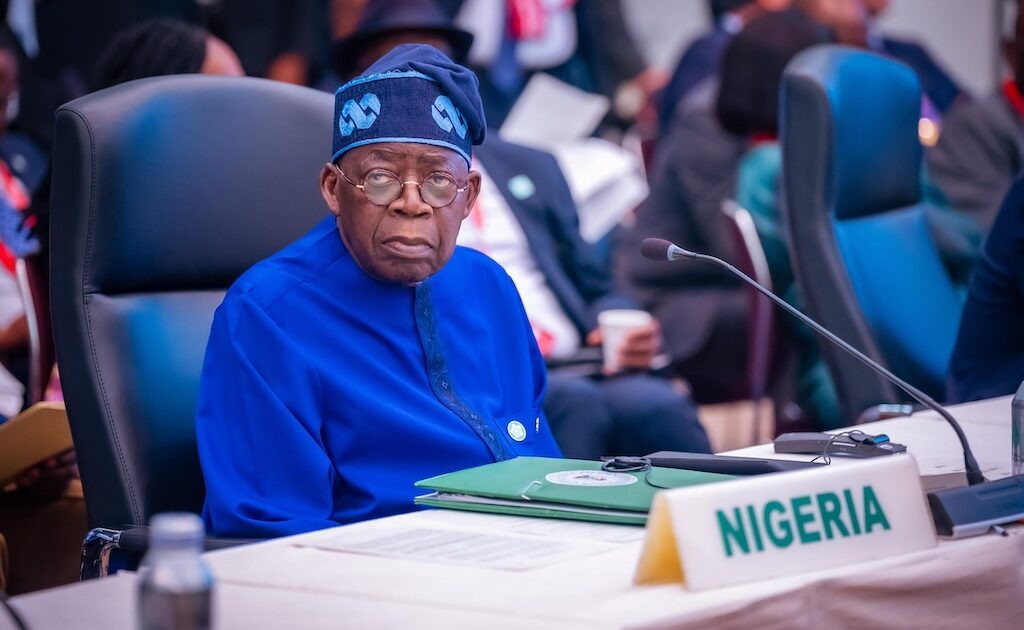President Bola Tinubu’s nationwide address, marking the end of emergency rule in Rivers State, underscored a vital message to Nigeria’s political landscape: the pursuit of selfish political interests must not overshadow the imperative of democratic stability and good governance. He warned against actions that could undermine the very foundation of democracy, emphasizing that the dividends of effective governance – the very fruits that citizens rightfully expect – cannot flourish in an environment marred by conflict, insecurity, and political machinations. Tinubu’s address served as a clarion call for unity and collaboration, urging political leaders to prioritize the nation’s well-being over personal ambitions. His decision to lift the state of emergency signaled a move towards reconciliation and a renewed focus on delivering the promises of democracy to the people of Rivers State.
The state of emergency in Rivers State, initially imposed by President Tinubu on March 18th, stemmed from a protracted power struggle that had paralyzed the state’s political machinery. The conflict primarily revolved around Governor Siminalayi Fubara and members of the State House of Assembly who remained loyal to the former governor, Nyesom Wike. This bitter feud threatened to destabilize the state and obstruct the smooth functioning of government, prompting the President’s intervention. The declaration of emergency rule, which included the suspension of the governor and lawmakers for six months, was accompanied by the appointment of a sole administrator to manage the state’s affairs. This drastic measure aimed to restore order and create an environment conducive to resolving the political impasse.
The decision to impose emergency rule, however, was met with mixed reactions. Critics argued that the President’s action overstepped constitutional boundaries and represented an infringement on the principles of federalism. They contended that such intervention could set a dangerous precedent, potentially undermining the autonomy of states within the federation. Conversely, supporters of the move viewed it as a necessary and pragmatic step to address a critical situation. They maintained that the political standoff in Rivers State had reached a point where decisive action was required to prevent further escalation and safeguard the interests of the citizenry.
The lifting of the state of emergency after six months signifies a transition towards normalized governance in Rivers State. The reinstatement of Governor Fubara, Deputy Governor Ngozi Odu, and the members of the State House of Assembly marks the resumption of their respective roles and responsibilities. This move reflects President Tinubu’s commitment to restoring democratic processes and fostering an environment of stability and collaboration. It also indicates a belief that the underlying political tensions have been sufficiently addressed to allow for the resumption of regular governance. The focus now shifts towards rebuilding trust, fostering unity, and working together to address the challenges facing Rivers State.
The period leading up to the lifting of the emergency rule witnessed significant efforts towards reconciliation and dialogue. Governor Fubara’s visits to President Tinubu, both in Lagos and Abuja, played a crucial role in easing tensions and paving the way for the restoration of normalcy. These meetings provided an opportunity for direct communication and fostered a better understanding between the two leaders. Furthermore, Governor Fubara’s meeting with former Governor Wike was a pivotal step towards resolving their differences and solidifying a united front within the state’s political landscape. These behind-the-scenes interactions were instrumental in creating an atmosphere conducive to lifting the emergency rule and restoring democratic processes.
The resolution of the political crisis in Rivers State offers valuable lessons for Nigeria’s political landscape. It underscores the importance of dialogue, compromise, and putting the interests of the nation above personal ambitions. The events in Rivers State serve as a reminder that political disputes, if left unchecked, can escalate into crises that threaten stability and hinder progress. The successful resolution of the standoff demonstrates the power of communication and collaboration in overcoming even the most complex political challenges. It also highlights the crucial role of leadership in fostering unity and guiding the nation towards a path of peace and prosperity. President Tinubu’s decision to lift the emergency rule signals a renewed commitment to democratic principles and a determination to create an environment where the dividends of good governance can be realized for all. The focus now must be on building upon this progress and ensuring that the lessons learned are applied to prevent future crises and promote a more stable and prosperous future for Nigeria.














